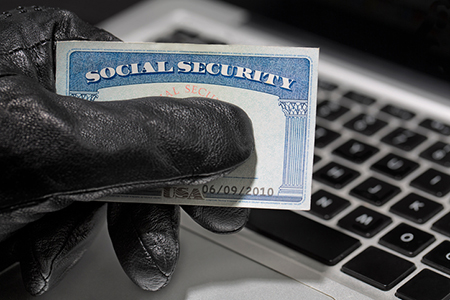Reacting quickly is essential after you’ve been the victim of identity theft. It can lessen the damage by thieves and lower the stress of having your credit card lost or stolen.
You may notice when you get home that your credit card is missing. Or you may get an email from your credit card company that there is some suspicious activity on your account.
Whatever alerts you to identity theft, here are some steps to take immediately after realizing it:
Get on the phone
Depending on the circumstances, you may want to first call the police to report a crime. If someone just grabbed your purse and ran away, the police are obviously the first agency to contact.
Next, call your credit card company and ask that it cancel your credit card and send you a new one immediately. If any charges were made by the thieves, the credit card company should remove them.
With anyone you contact about this theft, be sure to take notes of the names, dates, times, phone numbers and badge numbers of people you’ve talked to. You may need the information later to track down a police report.
Ask for a fraud alert
Calling one of the three major credit bureaus and reporting an identity theft will allow the credit bureau to put a fraud alert on all three your credit reports within 24 hours. The credit reporting agency must alert the other agencies when a fraud alert is requested, according to the Consumer Financial Protection Bureau.
A fraud alert requires creditors who check your credit report to verify your identity before opening a new account, issuing an additional card or approving a credit limit increase request.
An initial fraud alert lasts for 90 days. It requires creditors to confirm you are who you say you are, such as by calling you to verify a credit request. An extended fraud alert can be placed on your credit report for seven years, requiring the same alerts to verify who you are.
Consider a credit freeze
You can also request a “freeze” on your credit reports to stop identity thieves from opening new accounts in your name.
A security freeze prevents new creditors from accessing your credit report, which most businesses require to open credit accounts. A freeze won’t stop thieves from taking over existing accounts.
Check credit reports
After you’ve taken the immediate steps needed to deal with identity theft, be sure to periodically check your credit reports, especially in the first year after you discovered the identity theft.
You’re entitled to three free credit reports per year, so take advantage of them and be on the lookout for erroneous information.
Hope you found these tips helpful! Contact me for more insights and info.











